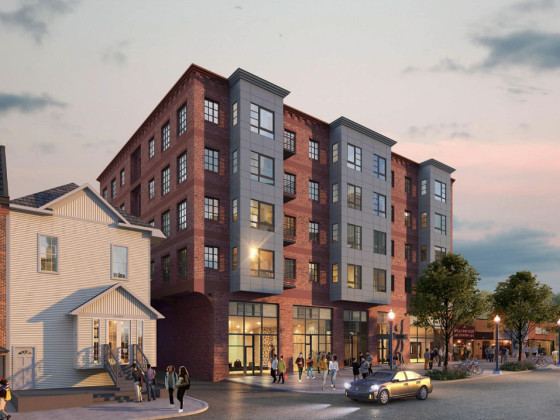 What Is a Community Association’s Responsibility In Regards To Alleged Discrimination Or Harassment?
What Is a Community Association’s Responsibility In Regards To Alleged Discrimination Or Harassment?
✉️ Want to forward this article? Click here.
Years ago, if the board of a community association (condo, coop, or HOA) learned that an owner was allegedly discriminating against or harassing another, it could turn a blind eye with little (if any) legal consequence.
Today, federal regulations and many local laws require a community association board to intervene and take action when it knows about alleged discriminatory conduct in its community, and has the power to correct it.
story continues below
loading...story continues above
What type of behavior is requires board action?
Under the Fair Housing Act, discrimination and harassment based on race, color, national origin, religion, sex (including gender identity and sexual orientation), familial status, and disability is prohibited. Harassment may take many forms and includes “unwelcome conduct that is sufficiently severe or pervasive as to interfere with…the use or enjoyment of a dwelling.”
When is a board’s duty to act triggered?
A community association’s duty to act arises when it learns about the allegedly illegal conduct. The association will also be deemed to have been required to act if it should have known about the conduct, which means that it had knowledge from which a reasonable person would conclude that the conduct was occurring. That knowledge can come from a friend of the person being discriminated against, or another resident that witnessed the conduct, or even from board member observing the conduct. No formal complaint is required.
What is the “power to correct” discriminatory behavior?
An association is not required to actually solve the problem, but it must do everything in its power to try. Most association governing documents contain provisions that require residents to adhere to all anti-discrimination laws and provide remedies for violation such as threats of fines, fines, loss of privileges, and suspension of voting rights. It may be that an association does everything it is contractually able to do, but the conduct persists. The important thing is that the board makes a true attempt to enforce the governing documents.
The following are a few examples of allegations of discrimination or harassment that may be made, and how a board might respond:
- A Black female homeowner complains to the HOA board that a white male neighbor is harassing her, making sexist and racist comments, and threatening her with harm. The board has a duty to investigate the complaint which may involve interviewing the complainant and the accused, as well as other neighbors. If the board determines that the conduct is likely to have occurred, it must take such action as its governing documents allow which may include issuing a cease-and-desist letter to the accused, issuing fines, potentially suspending his rights to use common facilities, and possibly making a report to the police.
- A disabled unit owner that uses a wheelchair lives above another unit in a condominium building. One day, while waiting for a ride in front of the building, he tells his friend that his downstairs neighbor will sometimes bang on the ceiling if the disabled resident uses his wheelchair in the middle of the night. The disabled resident says that he thinks that the downstairs neighbor is retaliating against the upstairs neighbor as a result of his disability. A board member overhears the conversation. The board member should inform the entire board about what she heard, and the board should investigate. It may turn out the downstairs neighbor is not retaliating at all, but that when they wake up in the middle of the night they move around and their doors and cabinets just happen to be a little loud – in which case action by the board may not be warranted.
- An LGBTQ+ resident of a co-op has been consistently receiving homophobic slurs and threats from another resident. They do not want to be the cause of any issues and do not want to make a formal complaint. A neighbor witnesses some of the inappropriate conduct and reports it to the co-op board. The board must investigate, but may want to start by speaking with the LGBTQ+ resident first to ensure they feel safe.
Not all neighbor-to-neighbor disputes will require association action, so it is important for boards to understand their legal obligations. A good first step in making sure this happens is to educate both board members and residents about anti-discrimination laws and the association's policies for addressing discrimination and harassment.
This article originally published at https://dc.urbanturf.com/articles/blog/what_is_a_community_associations_responsibility_in_regards_to_alleged_discr/21580.
Most Popular... This Week • Last 30 Days • Ever

On Thursday night, developer EYA outlined its plans at a community meeting for the 26... read »

EYA and JM Zell Partners have plans for 184 townhomes and 336 apartments spread acros... read »

Chris Hughes and husband Sean Eldridge are putting their Kalorama home on the market ... read »

If the walls of 1222 28th Street NW could talk, they'd have nearly three centuries wo... read »

The plan to replace the longtime home of Dance Loft on 14th Street with a mixed-use ... read »
- A First Look At Friendship Commons, The Big Plans To Redevelop Former GEICO Headquarters
- 520 Residences Planned For Former GEICO Campus In Friendship Heights
- Facebook Co-founder Lists DC Home For Sale
- One of DC's Oldest Homes Is Hitting the Market
- Plans For 101 Apartments, New Dance Loft On 14th Street To Be Delayed
DC Real Estate Guides
Short guides to navigating the DC-area real estate market
We've collected all our helpful guides for buying, selling and renting in and around Washington, DC in one place. Start browsing below!
First-Timer Primers
Intro guides for first-time home buyers
Unique Spaces
Awesome and unusual real estate from across the DC Metro













